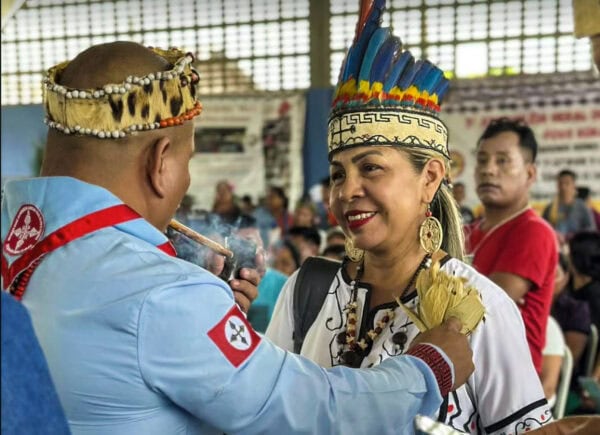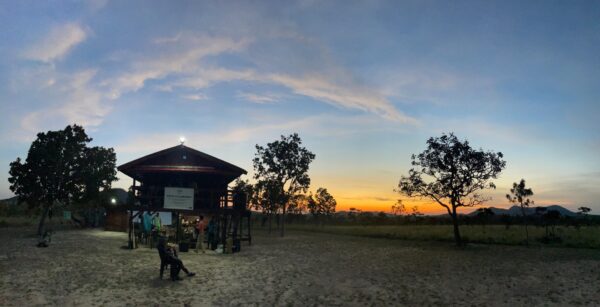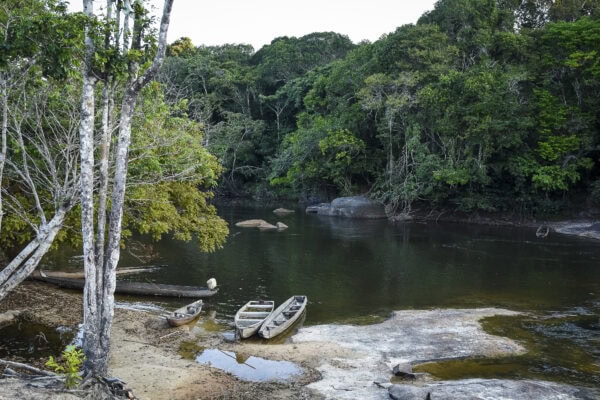Dutch version can be read on the ACT Suriname website.
Suriname faces two conflicting needs: the protection of large swaths of Amazonian rainforest, and support for its economy through the continued extraction of natural resources.
To identify the best sustainable management approach, researchers must collect reliable data in partnership with local communities whose traditional lands lie within the boundaries of the rainforest.
This year, ACT and the University of Utrecht will commence a joint project designed to strengthen sustainable management to protect resources and biodiversity in Trio and Wayana territory. The priority areas will be defined through careful discussion with local indigenous communities. The project will run for two years and has a budget of 215,000 euros.
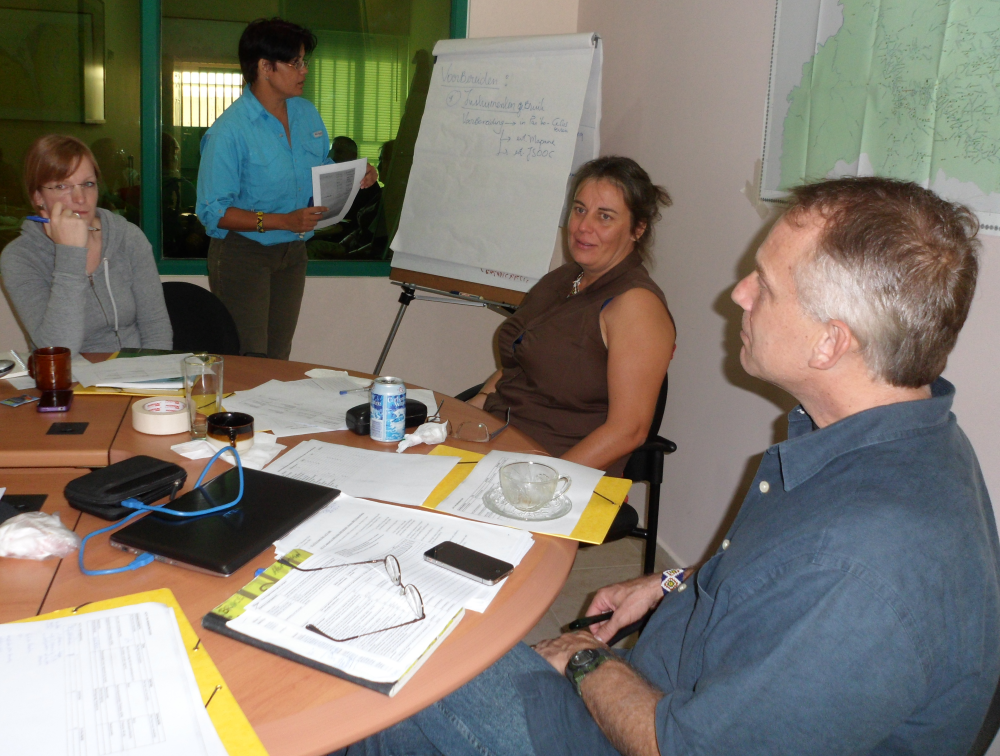 Left to right: Marijke van Kuijk (University of Utrecht), Minu Parahoe (Director, ACT Suriname), Katia Delvoye (ACT), and Bruce Hoffman (ACT). Click to enlarge
Left to right: Marijke van Kuijk (University of Utrecht), Minu Parahoe (Director, ACT Suriname), Katia Delvoye (ACT), and Bruce Hoffman (ACT). Click to enlargeOn February 27, representatives from ACT and the University of Utrecht met with local partners in ACT’s office in Paramaribo. During the meeting, stakeholders solidified the operation of the joint program that will increase the knowledge of the Indigenous Park Guards (IPGs). These IPGs are local authorities trained and hired by ACT. They are active in the villages of Tepu, Sipaliwini, Kwamalasamutu, and Apetina.
The IPGs track environmental conditions in and around local communities. Their activities include measuring water pollution to understand how nearby mining affects community health and monitoring any shift in the availability of trees and vegetation important for traditional cultural practices.
According to ACT Suriname Director Minu Parahoe, the joint program will further the IPGs’ abilities.
“All of our indigenous park guards will obtain the skills to collect data that can be utilized by scientists, the university, or the government,” she said.
The rangers will also train in tracking the effects of climate change and water quality in accordance with internationally accepted protocols.
“The IPGs can be the eyes and ears for our institutional partners in the coastal region who receive direct data to address matters like the illegal wildlife trade,” Minu said. “We now have 25 rangers working in four villages. If necessary, we will increase these numbers.”
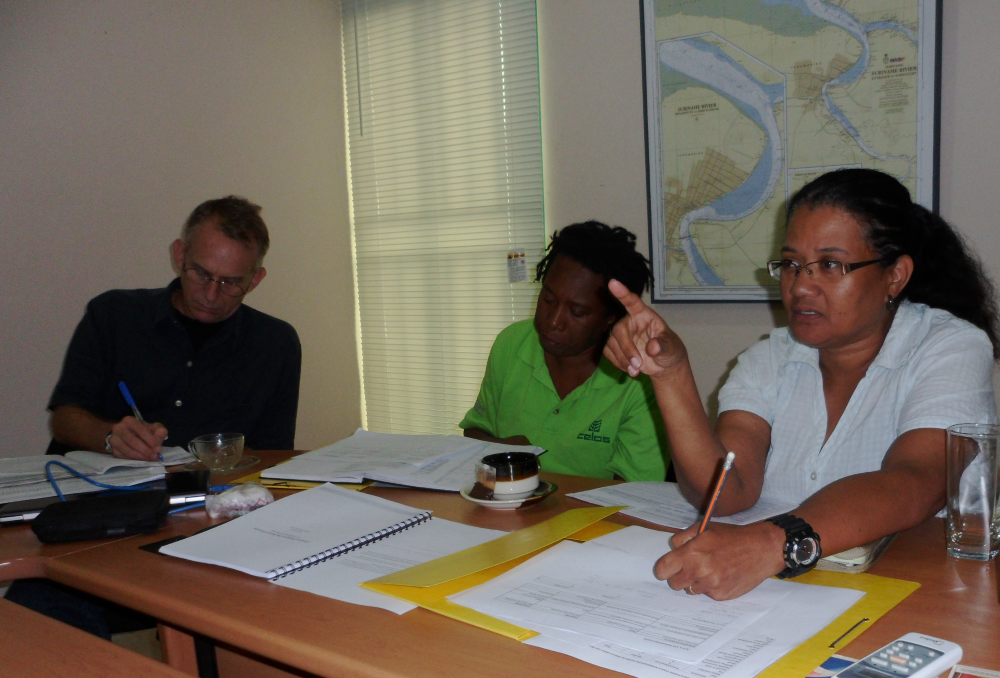 From left to right: Bruce Hoffman (ACT), Maureen Playfair (CELOS), Dorothy Traag (National Herbarium of Suriname). Click to enlarge
From left to right: Bruce Hoffman (ACT), Maureen Playfair (CELOS), Dorothy Traag (National Herbarium of Suriname). Click to enlargeThrough the joint project, IPGs will receive training from ACT, the University of Utrecht, the National Herbarium of Suriname, and Suriname’s National Forest Service (local ACT partners of ACT).
In this way, methods of data collection—as well as an understanding of ecosystem services and eco-products—will be improved, and a log-term management plan can be devised, according to Marijke van Kuijk, a lecturer in ecology and biodiversity at the University of Utrecht.
“We think with a long-term project in Suriname, we can collect very good data,” Marijke said.
In addition, students from the University of Utrecht, the Anton de Kom University, and Suriname’s Institute for Natural Resources and Engineering Studies will participate, providing an opportunity for these young people to exchange knowledge and build working relationships.
Building enthusiasm around this work is critical, according to Minu Parahoe.
“There is a true shortage of people who are interested in long-term data gathering projects,” she said. “The joint project is an opportunity to engage a new group of students in these efforts.”
Share this post
Bring awareness to our projects and mission by sharing this post with your friends.


